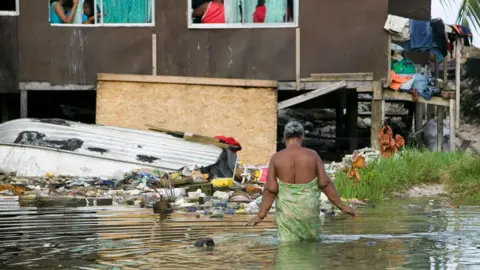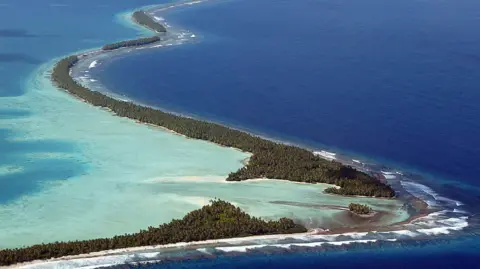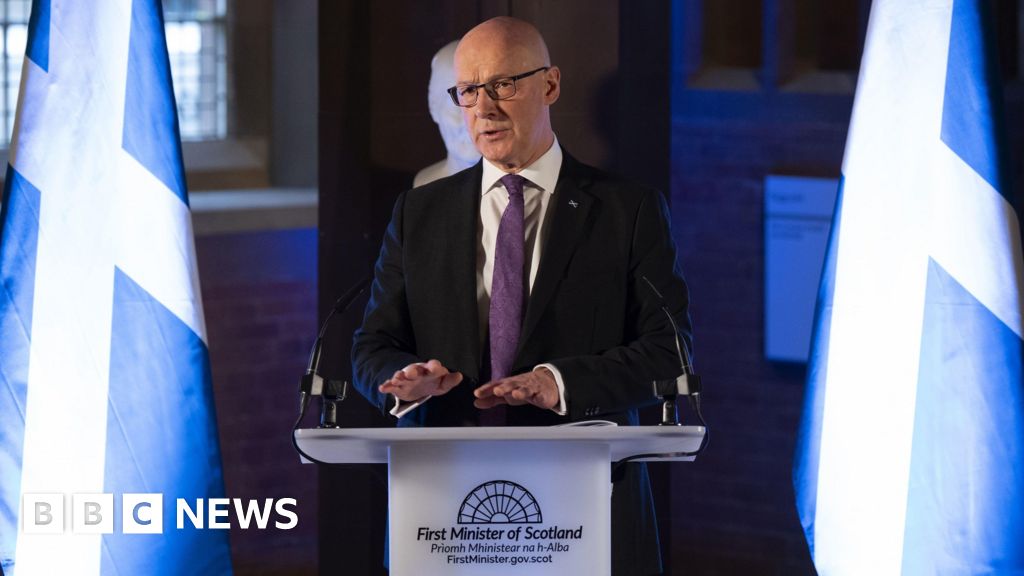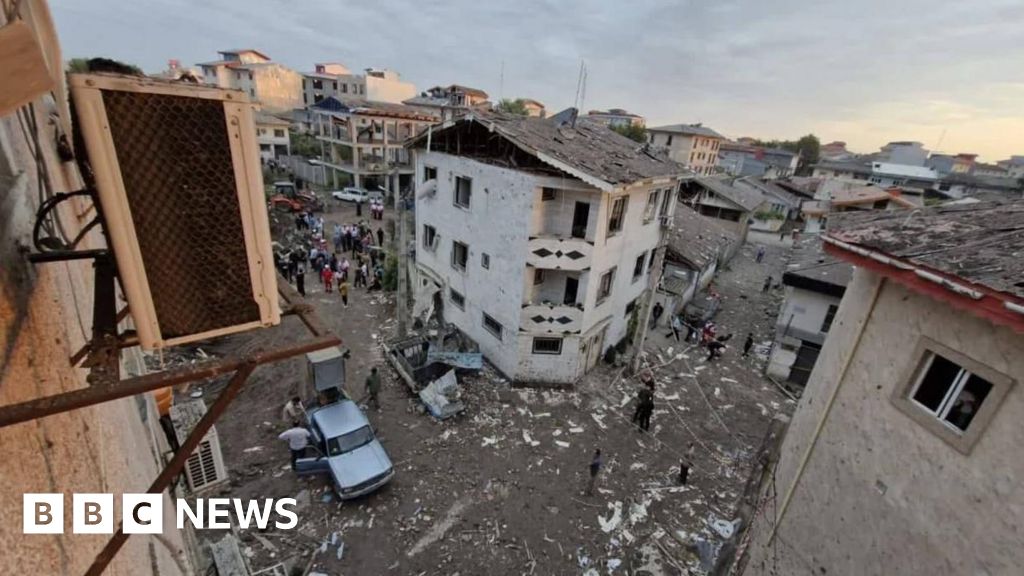
 Getty Images
Getty Images
Tuvalu is the world's second lowest-lying country
More than a third of Tuvalu citizens have entered the ballot for a world-first climate visa which would allow them to permanently migrate to Australia.
Opening for the first intake on 16 June, the influx of registrations could indicate that programme will be hugely oversubscribed, with only 280 visas awarded to Tuvalu citizens from the random ballot each year.
The visa programme has been pegged by the Australia's foreign affairs department as a landmark response to the threat of climate-related displacement.
At just five metres (16ft) above sea level, the tiny Pacific archipelago is one of the most climate-threatened nations in the world.
There have been 1,124 applications submitted to the ballot as of 27 June, which accounts for 4,052 Tuvalu citizens with the inclusion of family members.
The island nation is home to 10,643 people, according to census figures collected in 2022.

 Getty Images
Getty Images
If successful, holders of the Pacific Engagement visa will be granted indefinite permanent residency in Australia, with the ability to freely travel in and out of the country.
The visa will also provide for Australian supports on arrival in the country, such as access to the country's Medicare system, childcare subsidies and the ability to study at schools, university and vocational facilities at the same subsidisation as Australian citizens.
Entry to the 2025 ballot costs A$25 (£11.93, $16.37), and will close 18 July.
The new class of visa was created as part of the Australia-Tuvalu Falepili Union, announced in August 2024, which includes a commitment by Canberra to defend the island in the face of natural disasters, public health emergencies and "military aggression".
"For the first time there is a country that has committed legally to recognise the future statehood and sovereignty of Tuvalu despite the detrimental impact of climate changed-induced sea level rise," said Prime Minister Feleti Teo in a statement last year.
Scientists at Nasa have predicted that the majority of land mass and critical infrastructure in Tuvalu will sit below the level of the current high tide by 2050.



 3 months ago
111
3 months ago
111

















































